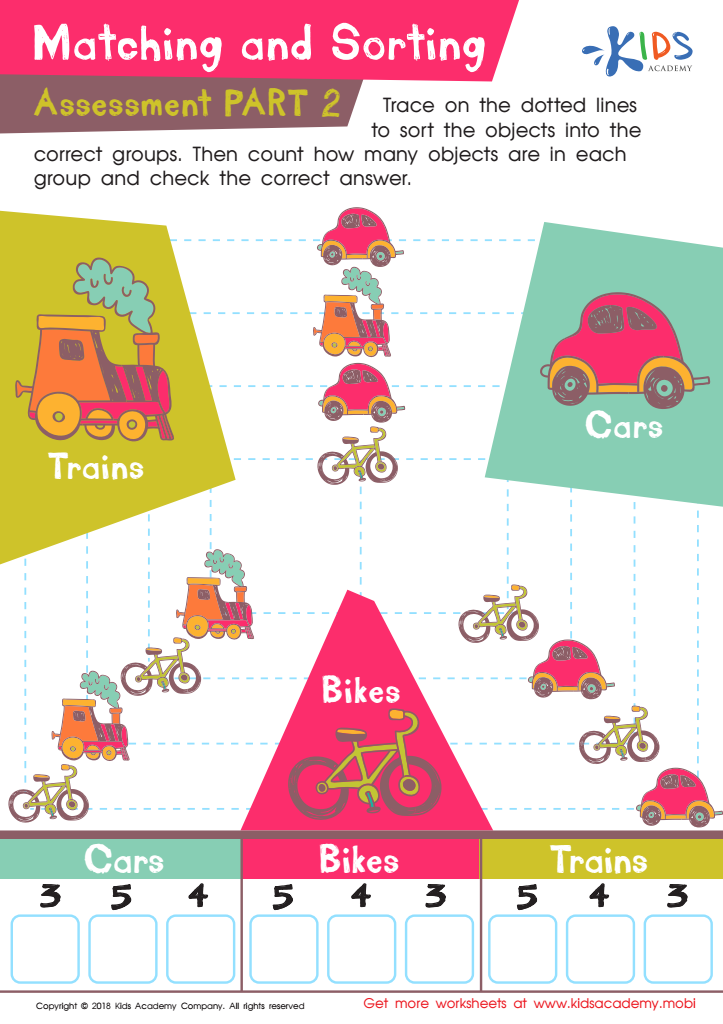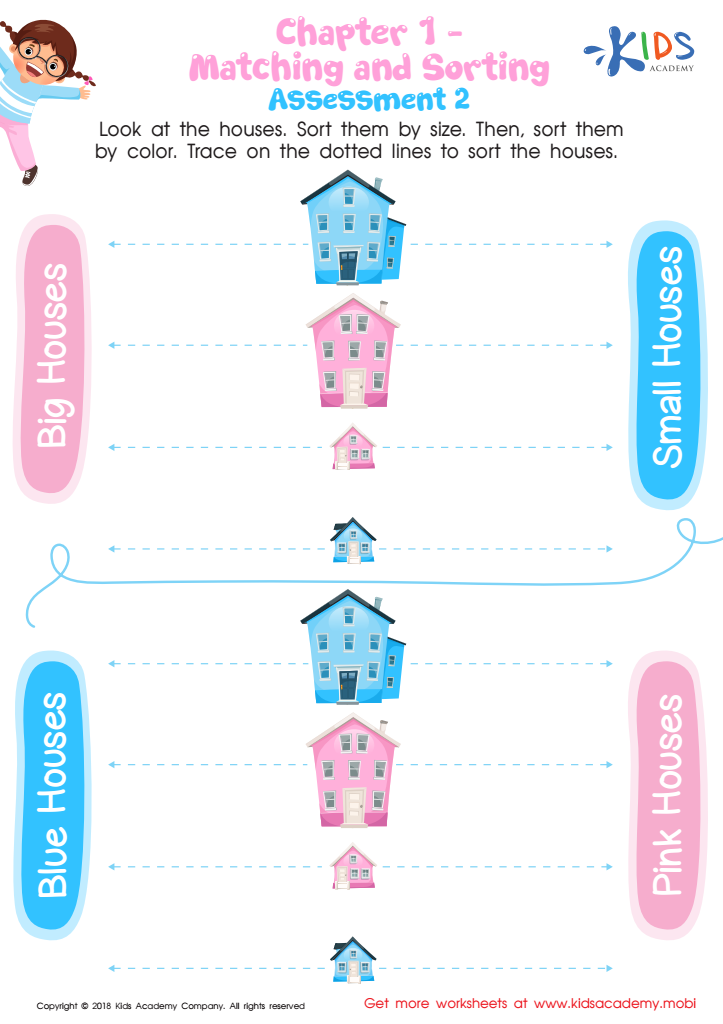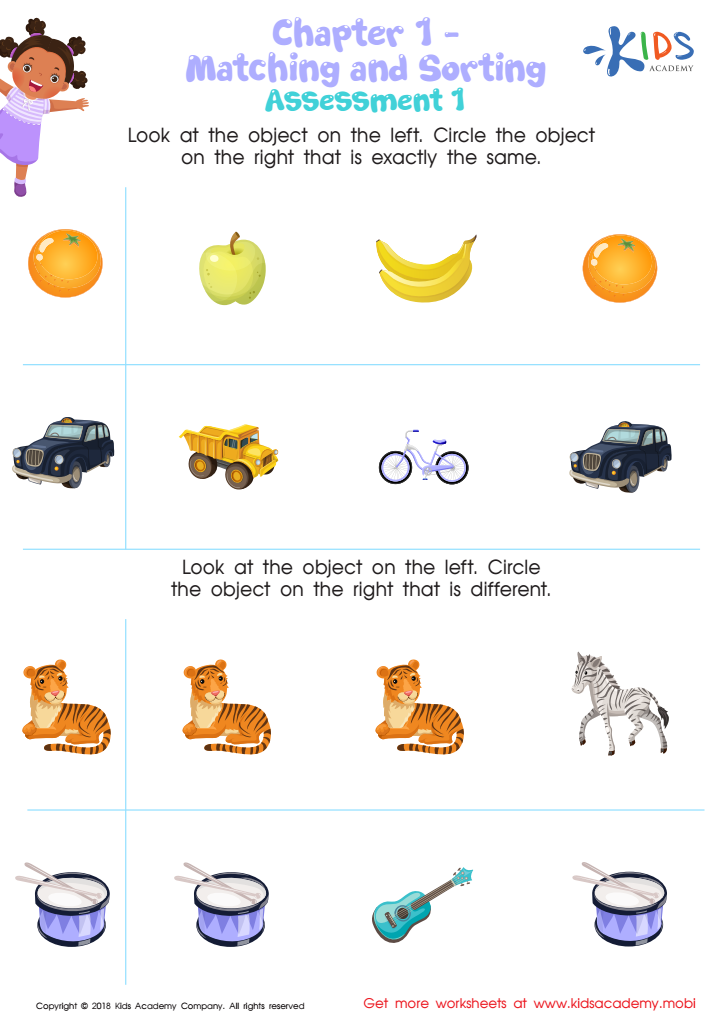Understanding fractions Sorting Worksheets for Ages 4-6
3 filtered results
-
From - To
Introducing our "Understanding Fractions Sorting Worksheets" designed specifically for children aged 4-6! These engaging and colorful worksheets provide a fun way for young learners to grasp the concept of fractions. Through sorting activities, children can identify and compare different fractions, reinforcing their understanding in a playful manner. Each worksheet encourages critical thinking and fine motor skills while promoting mathematical language and comprehension. Perfect for at-home learning or classroom use, these resources make mastering fractions enjoyable and interactive. Help your child build a strong foundation in math with our expertly crafted sorting worksheets today!


Matching and Sorting for Kindergarten: Assessment 2 Worksheet


Matching and Sorting for Preschool: Assessment 2 Worksheet


Matching and Sorting for Preschool: Assessment 1 Worksheet
Understanding fractions at an early age is crucial for children's mathematical development and cognitive skills. For parents and teachers dealing with children aged 4-6, engaging with fraction sorting activities can lay a solid foundation for later mathematical concepts. At this developmental stage, children are naturally curious, and introducing them to fractions through sorting can make learning fun and interactive.
Fractions represent parts of a whole, a fundamental concept that helps children understand division and sharing. Sorting activities—such as grouping different colored fruit slices or objects by proportions—can enable them to visualize how whole items can be broken down into smaller parts. These activities not only spark engagement but also reinforce critical thinking skills as children analyze and categorize based on size or quantity.
Moreover, learning fractions enhances language skills and vocabulary, as children describe their findings and articulate their thought processes. By integrating fraction sorting into learning, parents and teachers create opportunities for meaningful discussions, fostering a deeper understanding of mathematics and its real-world applications. Ultimately, this early understanding builds confidence and sets the stage for more complex mathematical reasoning in the future, crucial for a child's overall academic success.
 Assign to My Students
Assign to My Students
















